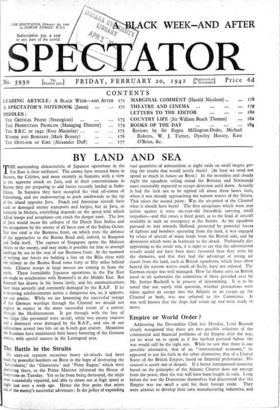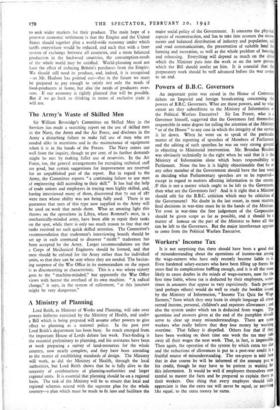Empire or World Order ?
Addressing the Devonshire Club last Monday, Lord Bennett clearly recognised that there are two possible solutions of the commercial and financial problems of the Empire after the war, yet he went on to speak as if the method pursued before the war would still be the right one. While he saw that there is one possible alternative, that of an " international economy," he appeared to put his faith in the other alternative, that of a United States of the British Empire, based on Imperial preferences. His counsel is surely one of despair. If a better international economy based on the principles of the Atlantic Charter does not emerge from the peace, then the war will have been fought in vain. Long before the war the Dominions themselves had discovered that the Empire was too small a unit for their foreign trade. They were anxious to develop their own manufacturing industries, and
to seek wider markets for their produce. The main hope of a post-war economic settlement is that the Empire and the United States should together plan a world-wide economy under which tariffs everywhere would be reduced, and such that with a freer system of exchange between all countries, and a more balanced production in the backward countries, the consumption-needs of the whole world may be satisfied. World-planning need not have the effect of reducing Britain's purchases from the Empire. We should still need its produce, and, indeed, it is recognised —as Mr. Hudson has pointed out—that in the future we must be prepared to pay enough to satisfy not only the needs of food-producers at home, but also the needs of producers over- seas. If our economy is rightly planned that will be possible. But if we go back to thinking in terms of exclusive trade it will not.



























 Previous page
Previous page